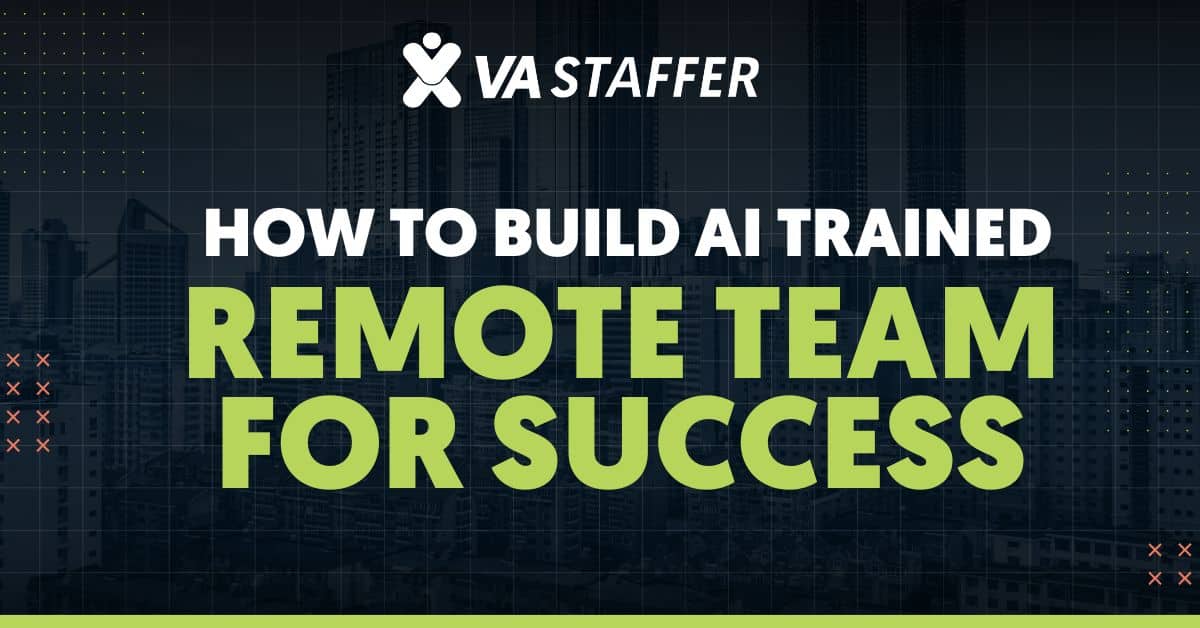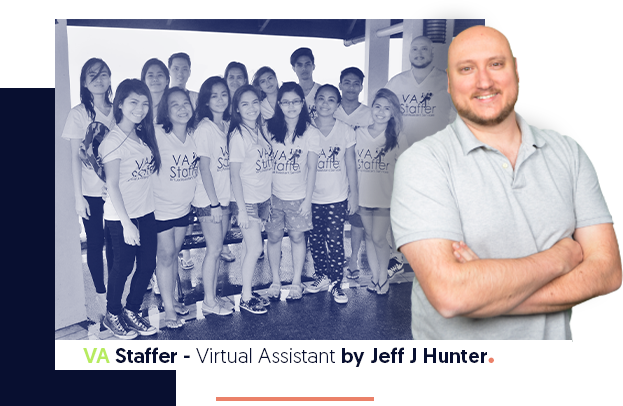AI training for teams is crucial in today’s business landscape.
This morning, I chatted with a business owner who expressed frustration with the AI learning curve. He wanted to incorporate AI technologies into his team’s workflows but felt overwhelmed.
“AI-trained remote teams” and AI upskilling sounds great in theory, but putting it into practice is a different story. Many business owners share this sentiment. It’s tempting to jump headfirst into the AI technologies hype, but, you might be wasting valuable resources without proper AI training for teams and lack of a concrete learning path for them to follow.
Table Of Contents:
- Why Is AI Training Important for Teams?
- Key Components of Effective AI Training for Teams
- Developing an AI Training for Teams Strategy
- Implementing Your AI Training Program for Maximum Impact
- Conclusion
- FAQs about ai training for teams
Why Is AI Training Important for Teams?
A recent study found that 72% of employees believe AI technologies will make their jobs easier. This statistic shows just how impactful AI upskilling can be for workplace efficiency and team happiness. AI is not about replacing your team; it’s about boosting each team member’s capabilities.
When employees receive training to work with AI, they feel more confident and empowered, which translates to a boost in productivity. This, in turn, leads to more innovation and, ultimately, better business results.
Embrace the AI-Human Synergy
Think of it this way: artificial intelligence is like a powerful engine and your team is the driver. Your team steers the wheel, makes decisions based on AI’s insights, and controls the overall direction. However, just like learning to drive a powerful sports car, harnessing the power of AI, especially generative AI requires training and skill.
When your team understands AI’s potential, limitations, and ethical implications, they can confidently collaborate with the technology and extract the most value from it. This AI-human synergy is important to unlock a new level of productivity and innovation.
Navigating Challenges in AI Implementation
Many entrepreneurs are hesitant about AI implementation for a variety of reasons. A recent study highlights the pervasive sense of “AI Skill Threat” among developers, reflecting anxiety about the future of their careers. As AI is integrated into more workplaces, executives, and decision-makers should understand these anxieties.
While generative AI excels in automating routine tasks, this blend of AI and human talent needs a careful approach that starts with training. Companies can ease anxieties about job security and the future of certain skill sets by making AI training accessible for all.
Key Components of Effective AI Training for Teams
AI upskilling refers to training programs that address both the technical aspects of AI and its impact on human workflows and collaboration. Here are some crucial components to include:
1. Foundational AI Knowledge
Start by introducing fundamental AI concepts, types of AI, and common AI terminology. Employees need to understand the “what” before the “how.”
It’s also essential to dispel common AI myths and address concerns about job security. Open communication, realistic expectations, and transparent discussions, continuous learning, are critical to fostering a positive attitude toward AI adoption.
2. AI Tools and Their Applications
Next, introduce your team to specific AI tools relevant to their roles. Focus on real-world use cases like generative AI, highlighting how these tools can automate tasks, improve decision-making, and drive innovation within their daily responsibilities and work environment.
Let’s say you’re a real estate professional wanting to integrate AI. One essential step as a business user of generative AI is to introduce your team to AI content writing platforms. This could automate the initial drafting process for social media posts, email campaigns, or even property descriptions.
3. AI-Powered Platforms for Everyday Work
If you use a cloud-based productivity platform, explore AI integration. Microsoft 365 Copilot is specifically designed to elevate workplace productivity and innovation. This makes it a great choice to start implementing an AI training program for all teams.
Microsoft also offers curated resources for training end-users, developers, and even administrators, which shows its deep commitment to integrating AI for a wide range of business purposes.
4. Practical AI Skill Development
The best AI training goes beyond theory. It emphasizes hands-on, interactive learning experiences where employees can practice using AI tools on realistic projects. Encourage them to adopt AI experiments with real data, solve AI-related challenges, and iterate on solutions with the help of training platforms or workshops.
The key is to make sure each individual can implement their newly developed AI skills. Every team member should be prepared to use their skills in their journey as a member of the organization.
5. Fostering Responsible AI Usage
This one’s often overlooked. Involve your team in conversations about responsible AI practices. Help them understand the ethical implications, the risks of bias, and the importance of data privacy in the work environment.
Promote an AI culture rooted in transparency, fairness, and accountability. This approach will build trust and create an environment where both your team and your AI work in harmony with ethical considerations and privacy choices.
Developing an AI Training for Teams Strategy
No matter your organization’s size or level of AI adoption, a clear AI training strategy is a must. Here’s a framework to get you started:
1. Define Your AI Training Goals
First, you must pinpoint how AI development and training can most benefit your organization. It could be improving productivity, enabling data-driven decisions, or empowering employees with new AI skills. Perhaps, your focus is fostering a future-ready work culture.
Clear objectives will guide your efforts and set the direction for your training initiatives. This is vital for measuring effectiveness and seeing that your plan gets you closer to the desired results.
2. Assess Team Skill Sets and AI Readiness
Conduct an audit to see where each employee or team is at regarding AI awareness and skills. This could involve a quick online assessment, a survey, or even focus groups. This process provides the basis for tailoring training programs that address any knowledge gaps.
You want to address specific concerns to personalize your team’s experience with AI. This ensures employees are comfortable with and able to get on board with AI implementation.
3. Tailor Your AI Training Programs
You could create online modules on fundamental AI concepts. Another option is to have interactive workshops where participants test real-world tools. You might even explore simulations that put AI skills to the test.
The format depends entirely on your objectives and the type of learner you want to reach. One study found employees perceived AI coaching chatbots like HARRi as relatable, even attributing human emotions to it. AI for training doesn’t always need to be a person; technologies such as coaching chatbots are great tools as well.
4. Cultivate a Culture of Continuous Learning
Make AI learning a continuous process by creating a learning environment. Opt for resources like articles, guides, sessions, and industry events. Encouraging employees to stay up-to-date is key.
This will promote continuous AI skill improvement, which, when done as part of an AI training program, builds excitement around AI integration.
Implementing Your AI Training Program for Maximum Impact
Successfully rolling out an AI training program involves more than handing out login credentials. You cannot expect employees to become AI experts overnight. To successfully integrate your AI training program, here are some steps to maximize its impact.
1. Phase in your AI program for each Team
Gradually introduce AI tools to different departments, tailoring the pace to the complexity of tasks. This allows teams to become familiar and confident in manageable chunks, rather than overwhelming them all at once.
2. Hands-On Practice With Realistic Workflows
AI training for teams works best when applied to tasks that benefit the employees. Using real workflows allows teams to practice AI applications with problems and datasets relevant to their daily work, which makes AI tools far more approachable.
Take the insurance industry as an example. Teams that use machine learning and AI to more accurately forecast future scenarios could easily adapt to this type of implementation. After all, their everyday job likely already includes this type of modeling.
3. Build an In-House “AI Champions” Program
To provide immediate, hands-on assistance, appoint individuals from each department as designated AI champions for their teams. These individuals will serve as mentors, helping their colleagues navigate newly implemented AI tools.
4. Continuous Feedback and Refinement
AI for training programs requires continuous oversight as AI and machine learning tools evolve quickly. Regularly gathering feedback from employees on the program, content, or issues they encounter will greatly benefit organizations.
This feedback will improve AI training programs. This responsive approach keeps content relevant and practical.
Consider the example of training AI models and bots used for answering commonly asked questions from customers. Without continuous monitoring and adjustments, AI could hurt customer satisfaction. It could drive people away if it isn’t refined over time based on user feedback.
Conclusion
AI training for teams is essential for modern businesses looking to thrive. Companies should aim for programs designed not only to provide their team with knowledge but also to equip them with applicable practical skills. Properly executed training is not only beneficial for driving profits and cutting costs, but it’s also great for increasing employee happiness.
In short, it empowers workers with cutting-edge AI skills.
FAQs about AI training for teams
FAQ 1: Does Microsoft Teams have an AI tool?
Yes. Microsoft Teams has AI built into many of its tools, including Microsoft Teams Premium, which includes an “intelligent recap” feature.
FAQ 2: Does Microsoft offer AI courses?
Yes. Microsoft offers AI learning through Microsoft Learn.
FAQ 3: How to train your employees on AI?
AI training for teams is the key to successfully building AI literacy in your team. This means creating foundational knowledge of what AI is, where and how to utilize it, and, finally, how to apply that knowledge to benefit employees in the workplace.


